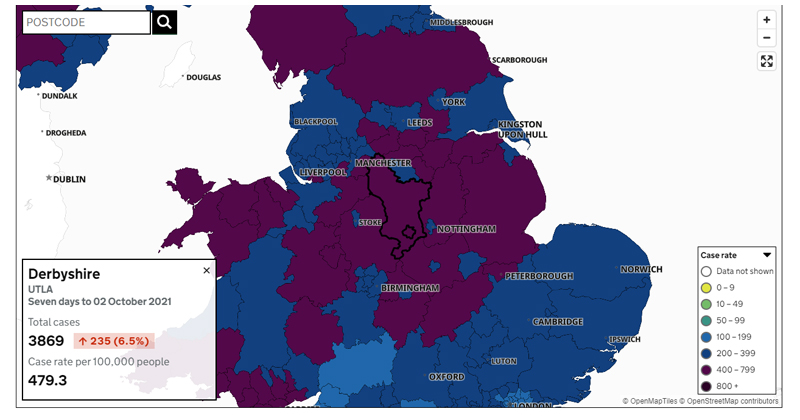The debate about high-stakes assessment is hotting up. Jess Staufenberg talks to the movers and shakers
You will have seen the headlines around assessment: “Scrap GCSEs”, “reform exams”, “focus on skills”.
They’ve been building for a while – about a year ago, some Conservative MPs said GCSEs should be “replaced with academic, technical exams and apprenticeships at 18”.
Then in January the think-tank EDSK unveiled plans to scrap GCSEs by 2025 for low-stakes assessments. And just before the pandemic, Robert Halfon, the chair of the education select committee, called GCSEs “pointless” and said they should be replaced with a “national baccalaureate”.
Then Covid-19 hit and confidence in the system plummeted as exams were cancelled, results delayed and U-turns aplenty made. Now multiple reviews, commissions, reports and pilots are focused on “the future assessment” across education. The debate is on.
FE providers have a particularly worthwhile voice to bring to the debate, says Eddie Playfair, the senior policy manager at the Assocation of Colleges. “Colleges live with the consequences of a stalled assessment system all the time, and that sense of failure that some learners have.”
Colleges often support the group that the Assocation of School and College Leaders (ASCL) calls the “forgotten third” – the students who do not get a pass in English and maths at the end of secondary school because of the “comparable outcomes” method of grade distribution introduced in 2011. They help students to resit GCSEs or take functional skills, long after schools are no longer responsible for them.
At the same time, FE providers also offer many students vocational and technical qualifications for the first time.
This makes FE an interesting lens for the assessment debate, Playfair says. “Colleges tend to offer pretty much every kind of possible qualification, which means we’re in an interesting position to judge what works.”
Colleges are in an interesting position to judge what works
There’s a general consensus that BTECs, which aren’t assessed via one exam in the summer, proved a more resilient qualification during the pandemic than GCSEs and A levels.
Tom Bewick, the chief executive at the Federation of Awarding Bodies, notes that “VTQs, with their ‘bankable’ units, proved to be a much more robust system of assessment” when Covid hit.
But there are deep frustrations with assessment in FE, too. So, who is saying what?
First there is The Times Commission on education, which launched in May. Out of its 23 members, only one is an FE college leader: Amanda Melton, principal at Nelson & Colne College in Lancashire. Her key concern is that the current system is “designed to encourage a sense of failure, in so far as only a proportion of students get the required grade, and the rest don’t”.
Not only does a GCSE outcome then become a marker of failure for many learners, but it operates as a kind of indicator that a failing learner should join further education, she says.
“The GCSE is a proxy for whether you’re going to take a technical and vocational or academic route, and that can’t be right.”
The problem of comparable outcomes is also firmly in the sights of another group, the Independent Assessment Commission. Hosted by the National Education Union (NEU), and with the Edge Foundation think-tank and Confederation of British Industry among its members, this commission began taking evidence on 14-19 academic, vocational and technical assessment in June. It’s chaired by Louise Hayward, professor of educational assessment at the University of Glasgow.
I ask Hayward whether the commission will recommend the GCSE be scrapped, but she says she cannot speak before the final report comes out next month. However, she is clear that comparable outcomes should go. “Qualifications should reflect what a young person has achieved, not be downgraded or advantaged by their year group.” There should be a return to criterion-based, rather than comparative, assessment, she says.
Melton believes that a “certificate of competence” for learners rather than ranked grades could be one solution, leaving “greater bandwidth” in the curriculum for more creative, vocational and practical courses.
Nansi Ellis, the assistant general secretary at the NEU, agrees. “There’s no reason you should have to bank everything at age 16. Instead, you could bank some things, at different times, and not always through a written exam.”
Olly Newton, the executive director at the Edge Foundation, says these suggestions echo how BTECs and other VTQs, with their portfolio work and modules, are assessed already. Even the heavily weighted end-point assessment for an apprenticeship is done when the apprentice is ready, in a “stage not age” model.
“For years there’s been more focus on developing a portfolio and having a practical assessment and viva-type assessments on the vocational side,” he says. “Wouldn’t that be great for other academic subjects? There’s an important potential for borrowing from the FE sector there.”
But instead, warn Newton and Melton, FE is at risk not of promoting its own models of assessment, but mimicking schools and higher education. “The main thing we’re worrying about is the over-reliance on end-point assessments in apprenticeships,” Newton says, pointing to how the new apprenticeship standards introduced a single, cut-off assessment moment like an exam. “It’s almost like the vocational space is trying to emulate the academic space.”
It’s like the vocational space is trying to emulate the academic space
Melton delivers a similar warning: “We have to be careful that T levels don’t go the way of A levels and become too elite, and the same goes for apprenticeships, especially degree apprenticeships. You’re making apprenticeships academic, instead of what they’re meant to be.”
Calls for a 14-19 “national baccalaureate”, combining academic and vocational subjects, are growing louder. The Rethinking Assessment group, set up by the Big Education Trust charity, is led by Peter Hyman, a former adviser to Tony Blair. He wants all students to have a “comprehensive learner profile”, showcasing their achievements, projects and skills, alongside a “menu of single and interdisciplinary subjects that mixes the academic and the vocational” – similar to the International Baccalaureate.
Hayward, at the NEU commission, also says her group “recognises that the division between academic and vocational is artificial”. One day, it might mean students arrive in FE with more VTQs under their belt, and that schools and colleges speak a more common language.
However, the Department for Education has a different vision. Its level 3 qualifications review has set out plans to funnel students down either an “academic” or “technical” route, via A levels or a T level (which is the equivalent of several A levels). But Newton argues post-16 learners should be able to choose a combination of vocational, technical and academic subjects.
“I’m a big fan of the foundational apprenticeships in Scotland, which is more the size of a single A level,” he says. Learners could do an A level, a BTEC and a foundation apprenticeship, combining classroom and work-based learning. In Scotland, students who have completed a foundational apprenticeship can then knock six or nine months of a full apprenticeship, starting at a more advanced point. “It’s an interesting model, and it’s not very far away from us.”
The Edge Foundation has also recently commissioned the National Foundation for Educational Research to look into how destinations data can be used by colleges and schools. The government provides destinations data nine months after students leave education, but this project will look at students five years on. A report will be released with the findings at the end of this year, and colleges and schools will be given the chance to access their own data to act on if they wish.
Also handing colleges the reins to innovate is NCFE, the awarding body. Over the next 12 months, it will hand out £1 million (up to £100,000 per trial) from its Assessment Innovation Fund. The first round of funding closed last week, with winners yet to be announced, and the next round opens on October 25.
David Gallagher, its chief executive, says it believes there are inherent problems in the system and that the status quo needs to be challenged. Trials might seek to make assessment more inclusive to under-represented groups, or make assessment “transformational, not just transactional”. This means tests that seek to develop and improve the learner at the same time as they take the test.
Like the Edge Foundation, Gallagher also thinks richer assessment data sets should be accessed. “We’ve had thousands of people go through end-point assessment, and we’ve hardly ever had anyone in government ask, which learning outcomes are people struggling on? How can we use that insight to find out who this is working for?” The conversation around assessment is “not just about what is assessed, but how we intelligently use assessment data”, he adds.
Others sound warnings, however. Carole Willis, the chief executive at the National Foundation for Educational Research, says the stage-not-age approach was piloted in “single level tests” in 2007. “A range of concerns were raised at the time. It would involve more tests for students at every ‘level’ throughout their education, could distort the curriculum and teaching and is likely to be more expensive than the current system,” she says. It’s food for thought.
Removing comparable outcomes is also tricky because “some mechanism is needed to maintain standards, and ensure that exams and grading decisions remain consistent over time – because the questions change every year”, she says.
There’s also no guarantee of change: when exams were considered too easy, the Tomlinson review called in 2004 for GCSEs to be replaced with a 14-19 baccalaureate. The government rejected the proposals.
Yet with new ministers in post, perhaps real reform, set at the right pace, is doable.
An Ofqual spokesperson said: “While we are looking forward to the return of familiar exams and assessments, it is right that we are open to considering new approaches to assessments we regulate and that we learn from experiences during the pandemic.
“The aim overall is to improve existing gold-standard qualifications.”
“Reform of exams and assessment is a delicate business,” concludes Playfair. “But there is a desperate need.”




